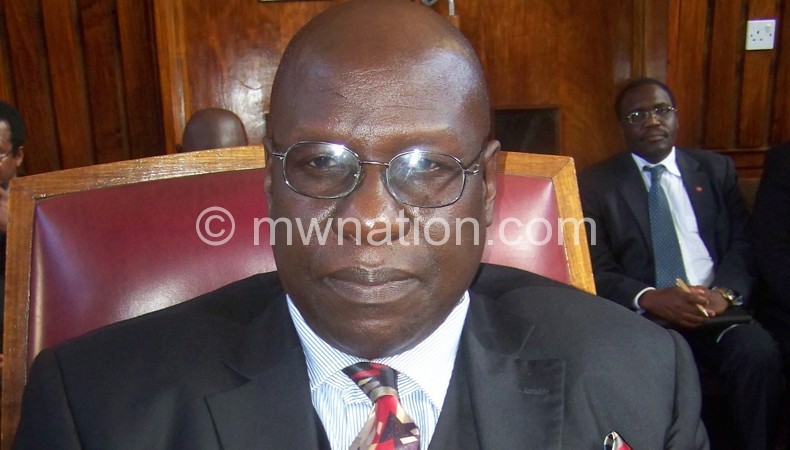Inside constituency demarcation calls
Likoma, a breathtaking island district in the northern part of Lake Malawi, is unique in many ways. It is the only island district in the country designated by a political decree in 1999.
Its geographical position has been the reason for its uniqueness, including how it is managed administratively and how social amenities are distributed.
It is a perfect example of a district without a government district hospital. In addition, its administrative composition is not just unique.

In fact, Charles Mwawembe, the district’s commissioner, says it is really an ‘awkward district’.
The district is the only one in the country with one constituency. This means it has two wards for councillors as regulated by the Malawi Electoral Commission (MEC).
The two councillors—Sam Chithira for Likoma Ward and Swinton Ng’oma for Chizumulu Ward—choose a chairperson and vice between them.
The council is also at war against provisions that council chairpersons should not head council committees as the councillors are forced to head various committees.

the report: Duwa
Mwawembe describes this scenario as unhealthy for the council’s operations, adding that the deficiency of the local leaders exposes the council in various ways.
“It’s a challenge when a council meeting wants to vote on critical issues. We don’t have a balance in terms of votes because we only have two councillors and a Member of Parliament [MP].
“Ideally, councillors are supposed to have more voices in meetings than other officials, but as it is other officials overtake them,” says the DC.

Mwawembe argues that the scenario defeats the whole purpose of having councillors, and if nothing is done to address the anomaly, he warns, the situation threatens impartiality in decision making.
Likoma is just one of the districts grappling with councillor representation in council meetings. Some of the districts in need of more representation of councillors due to a smaller number of constituencies include Balaka, Mwanza and Neno.
On the other hand, local leaders in Mzimba want their constituencies to be demarcated, arguing that development projects are not distributed equally due to the vastness of the district.
Such calls, however, are within the provisions set by the Constitution. For example, Section 76 (2) (b) of the Constitution requires that MEC should review existing constituencies and wards at intervals of not more than five years and to alter them in accordance with the principles laid down in the same section.
The Constitution mandates the commission ‘to determine constituency boundaries on the basis of approximately equal numbers of voters eligible to register, subject to population density, ease of communication, geographical features and existing administrative areas.’
In addition, section 8 (1) (c) of the Electoral Commissions Act (ECA) provides powers to MEC ‘to undertake and supervise the demarcation of wards for purposes of Local Government Elections.’
However, the demarcation of constituencies has not taken place since 1998 while delimitation of wards was undertaken in 2011 in preparation for Local Government Election (LGE) in 2014.
Noticing such challenges, the National Task Force on Electoral Reforms, co-chaired by Steve Duwa and the Reverend Emmanuel Chimkwita, was formed to improve the election process for citizens, voters, candidates and parties.
On its review, the task force observes that the principle of dividing the country into constituencies with approximately equal number of voters has been violated.
“For example the number of registered voters varied between 6 933 (Likoma Island) and 126 996 (Lilongwe City Central). These wide variations show how the principle of dividing the country into constituencies with approximately equal number of voters has been clearly violated,” reads the task force’s July 2015 report on electoral reforms.
The report observes that the 2010 ECA amendments resulted in the reduction of the number of wards and made the wards bigger than they were before. It argues that this has affected implementation of various developmental projects due to inadequate supervision.
“Effective Local Government systems require that their elected representatives live within the community and are able to visit them without hindrance. The consequence is that huge wards combined with an absence of reliable means of transport for councillors imply that communities remain detached from their representatives,” it states.
The Malawi Electoral Commission plans to conduct an extensive demarcation of wards and constituencies in the country this year.
A sum of K300 million has been allocated for the exercise in the budget that was passed by Parliament a few months ago, according to MEC director of media and public relations Sangwani Mwafulirwa.
“It will be a national exercise and all stakeholders including political parties, traditional leaders and others shall be consulted,” said Mwafulirwa.
However, the task force observes that guidelines for demarcation of constituencies in the Constitution are not supported by provisions in the Parliamentary and Presidential Elections (PPE) Act and the Local Government Elections (LGE) Act to support the process.
It also notes that there is limited liaison between town planning, director of local government and other authorities dealing with boundaries.
The committee therefore suggests that relevant sections of the ECA Act and the Local Government Act should be amended to repeal the changes that were made in 2010 so that wards are not subordinated to the Constituency and the Commission can determine the appropriate number of wards.
However, the committee recommends that constituencies should not be demarcated, considering the recommendation to adopt the multi-member Constituency for parliamentary elections.
“The existing district boundaries will be used on a permanent basis. It is the number of seats allocated to the district that will become variable based on demographic factors.
“A law should be introduced that should prevent overlapping of town, district, municipal and city boundaries so that the composition of local government councils is straight forward and sensible.
“MEC should coordinate various authorities dealing with boundaries so that they interface and review issues of the boundaries in Malawi,” it adds.
When MEC undertakes the demarcation exercise, Mwawembe begs that stakeholders involved should remember Likoma which is crying for more councillors. n





